Above Suspicion

Brief Synopsis
Cast & Crew
Richard Thorpe
Joan Crawford
Fred Macmurray
Conrad Veidt
Basil Rathbone
Reginald Owen
Film Details
Technical Specs

Synopsis
In spring 1939, American-born Oxford professor Richard Myles and his American bride Frances begin their honeymoon at an English roadside inn, registering under the names Mr. and Mrs. Edward Smith. Their first night together is interrupted by the unexpected arrival of Peter Galt, a former classmate of Richard's, now employed by the Foreign Office. Aware that the newlyweds are headed for southern Germany, Peter asks Richard and Frances to track down a scientist "friend," who has information about a magnetic mine the Germans have developed. Richard and Frances eagerly agree to help, feeling that as American tourists, they are "above suspicion." Upon arriving in Paris, Frances buys a hat decorated with a rose, which is to serve as a signal for their contacts. In a Parisian restaurant, Frances and Richard meet up with their first contact, who silently instructs them to go to a café in Montmartre. There, a guide book to southern Germany is slipped into Richard's coat pocket. Frances and Richard notice a series of pinpricks on a map in the book, and Frances discovers that, when connected, the dots become the opening notes to the song "My Love Is Like a Red, Red Rose." The guide book also indicates that the couple is to go to Austria, to a certain bookstore in German-occupied Salzburg. At the bookstore, the newlyweds mention the song title, and under the noses of some Gestapo officers, the owner, A. Werner, signals them to head for a Salzburg museum. There, a tour guide named Hassert Seidel suggests that they check into a guest house run by Frau Kleist. After a few uneventful days at the guest house, Frau Kleist gives Frances and Richard a biography of Franz Liszt, aware that the couple is planning to attend a concert of Liszt's music that night. From markings in the book, Richard and Frances deduce that they are to go to a village called Pertisau, near Innsbruck, and inquire about a man who collects chess pieces. Before leaving for the concert, Richard meets fellow boarder Thornley, a recent Oxford graduate. Although Thornley, who has been practicing a noisy passage from Liszt's first piano concerto, advises Richard not to attend the concert, the couple goes anyway. At the concert, as the orchestra plays the same passage that Thornley had been practicing, a Nazi colonel is shot and killed. Nazi officials insist on questioning the entire audience, but Richard and Frances are rescued by Count Sig von Aschenhausen, a former Oxford schoolmate of Richard's. At Richard's behest, the count also intervenes on Thornley's behalf and invites all three visitors to his mother's nearby estate. There, Sig comments that the assassin must have been familiar with the Liszt concerto and asks Thornley to play the passage for him. Thornley claims not to know the piece, but later Thornley admits to Richard that he killed the Nazi as revenge for torturing and killing his Austrian girl friend. The next day, in Pertisau, the owner of a collectors' shop directs the newlyweds to the home of Dr. Mespelbrunn. While waiting to see the doctor, Richard and Frances notice the sheet music for "My Love Is Like a Red, Red Rose" on his piano. Just then, Sig appears, explaining that he has come to see Mespelbrunn on important business. When Sig does not respond to a signal that Richard gives him, the couple becomes suspicious. They then hear thumping noises upstairs and discover that Sig is holding Mespelbrunn prisoner. Before Frances and Richard can free the doctor, Sig and his Nazi cohorts interrupt them. The Americans flee to the surrounding woods, where they are surprised by the timely arrival of Hassert. With Hassert's help, Frances and Richard free Mespelbrunn, and all four head for Innsbruck. Outside Innsbruck, a now-disguised Mespelbrunn gives Richard a paper with the mine information on it, states the names of several trustworthy men, then goes his way. Hassert drives Richard and Frances, who are disguised in Tyrolean clothes, to Innsbruck, instructing them to obtain passports from a couple named Schultz. At the Schultzes, Richard and Frances dress as elderly people and have their photographs taken for their forged identification. After sending the newlyweds on their separate ways, the Schultzes are arrested by the Gestapo, who discover the negatives from Richard and Frances' passport photos. As she is about to reunite with Richard, Frances is spotted by Thornley, who also happens to be in Innsbruck. Frances is then picked up by the Gestapo, but manages to tell Thornley where to meet Richard. Thornley alerts Richard to his wife's plight, and Richard seeks Hassert's help. Waiting until most of the Gestapo have left headquarters for the night, Richard, Thornley and Hassert sneak in and, with guns blasting, take Frances' interrogators by surprise. The men steal some Nazis' uniforms and flee with Frances, who has been beaten, but as they are escaping, Thornley is killed. In a Nazi car, Hassert and Richard hide Frances, then drive to the Italian border. After fooling the Nazi border guards, Hassert and the newlyweds finally find freedom.

Director

Richard Thorpe
Cast
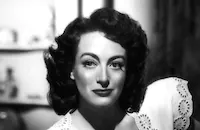
Joan Crawford

Fred Macmurray

Conrad Veidt

Basil Rathbone
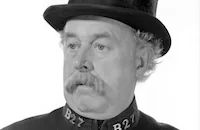
Reginald Owen

Richard Ainley

Cecil Cunningham
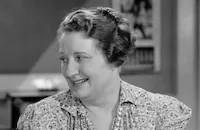
Ann Shoemaker

Sara Haden

Felix Bressart
Bruce Lester
Johanna Hofer
Lotta Palfi
Alex Papana
Rex Williams
Hans Von Morhart
William Yetter

Steve Geray
William "wee Willie" Davis
Lisa Golm

Ludwig Stossel

Ivan Simpson
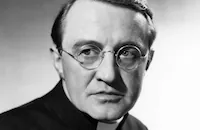
Arthur Shields
Henry Glynn

Eily Malyon
Matthew Boulton
Marcelle Corday
Frank Lackteen
Charles Deravenne
Andre Charlot
Frank Arnold
George Davis
Jack Chefe
Felix Basch

Edit Angold
Irene Seidner
Lisl Valetti
Paul Weigel
Otto Reichow
Giselle Werbiseck
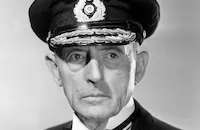
Frank Reicher
Peter Seal
Nicholas Vehr
Henry Victor
Egon Brecher
John Rice
Hans Furberg
Albert D'arno
Erno Verebes
Kurt Newman
Henry Guttman
Walter O. Stahl
Steven Muller
Frank Brand
Frederick Bauer
Helen Boice
Max Willenz
Heather Thatcher
Jean Prescott
Sven-hugo Borg
Walter Bonn
Hans Schumm
Hans Wollenberger
Phil Van Zandt
Lionel Royce
Joseph Devillard
Harold Hensen

Peter Lawford
Barry Heenan
David Lennox
Sam Mccullough
Clive Murdock
George Aldwin
Michael Chudley
Horace Pressel
Cliffe Oland
Edwin Mills
Gretl Dupont
Sonia Charsky
Mme. Delia Borget
Isabelle Lamore
Nita Pike
Chris Mario Meeker
Serafina Davidoff
Yvonne Chenal
Sandra Morgan
Albano Valerio
Ray Deravenne
Arthur Dulac
Manuel Paris
Antonio D'amore
Eumenio Blanco
Albert Petit
Albert Godderis
Capt. John Van Eyck
Edgar Licho
Frederick Giermann

Tony Caruso
Ferdinand Schumann-heink
Bob Stevenson
Louis Donath
Julius Cramer
Crew
Melville Baker
Felix Bernstein
Robert Burns
Patricia Coleman
Jack Dawn
Randall Duell
Cedric Gibbons
Leon Gordon
George Hively
Hugh Hunt
Irene
Bronislau Kaper
Arthur J. Lamb
Leonard Lee
Franz Liszt
James Newcom
Warren Newcombe
Robert Planck
Victor Saville
Douglas Shearer
Bert Spurlin
Gile Steele
Harry Von Tilzer
Edwin B. Willis
Keith Winter

Film Details
Technical Specs

Articles
Above Suspicion
The plot of Above Suspicion has Oxford professor MacMurray and his bride, Crawford, on a honeymoon in prewar Germany, where they are actually working as secret agents for the British and trying to gain information about a super weapon being developed by the Nazis. With Nazis hot on their trail, they bumble their way through Germany and Austria, following enigmatic clues involving music and a red rose. In the plus column, the movie boasts expert performances by Basil Rathbone as a sneering Nazi aristocrat who imprisons and tortures Crawford (while never cracking her impeccable MGM gloss), and Conrad Veidt in his final performance as an Austrian resistance fighter. (Veidt died at age 50 of a heart attack shortly after the film was completed.)
Crawford herself is surprisingly restrained in what proved to be the final film of her 18-year stay at MGM. Some felt that, with such scripts as Above Suspicion, studio head L.B. Mayer was forcing the actress to walk out on her contract. Crawford, however, had the last laugh; within two years she would re-emerge triumphantly as a revitalized Warner Bros. star and Best Actress Oscar winner for Mildred Pierce (1945).
Producers: Victor Saville, Leon Gordon (Associate)
Director: Richard Thorpe
Screenplay: Melville Baker, Patricia Coleman, Keith Winter, from novel by Helen MacInnes
Cinematography: Robert H. Planck
Art Direction: Cedric Gibbons, Randall Duell
Original Music: Bronislau Kaper
Editing: George Hively
Costume Design: Irene, Gile Steele
Principal Cast: Joan Crawford (Frances Myles), Fred MacMurray (Richard Myles), Conrad Veidt (Count Hassert Seidel), Basil Rathbone (Count Sig von Aschenhausen), Reginald Owen (Dr. Mespelbrunn), Ricahrd Ainley (Peter Galt), Cecil Cunningham (Countess von Aschenhausen),
BW-91m. Closed captioning. Descriptive video.
By Roger Fristoe

Above Suspicion
Quotes
Trivia
Notes
Onscreen credits list George Hively as the film's editor, but James Newcom is listed as editor in all Hollywood Reporter production charts. In December 1941, William Powell was announced as the male lead in the picture, and in July 1942, Myrna Loy was announced as his co-star. According to Hollywood Reporter, M-G-M cast the popular starring team in an attempt to break them out of their "Thin Man" mold. After Loy left M-G-M in October 1942, however, Fred MacMurray and Joan Crawford were cast in the leads. Above Suspicion marked the only time that MacMurray co-starred with Crawford, and was the first M-G-M picture in which he appeared. According to M-G-M production files, Stuart Hall coached Crawford and MacMurray in Cockney accents. Neither actor used a Cockney accent in the completed picture, however. Although Hollywood Reporter announced that George Glagori had portrayed a "Gestapo chief" in the picture, his appearance in the final film has not been confirmed. Hollywood Reporter also announced that Leonard Walker was to conduct an orchestra in some scenes, but it has not been determined if he actually appeared onscreen. According to Hollywood Reporter, for authenticity's sake, female bit players in the Germany scenes were not allowed to wear makeup, as Hitler had banned the wearing of makeup in 1933. Some scenes were filmed at an abandoned Acme gypsum mine near Bishop, CA, and mountain scenes were shot at Mt. Wilson, east of Los Angeles, according to Hollywood Reporter. Conrad Veidt died of a heart attack on April 3, 1943; Above Suspicion was his last film.















